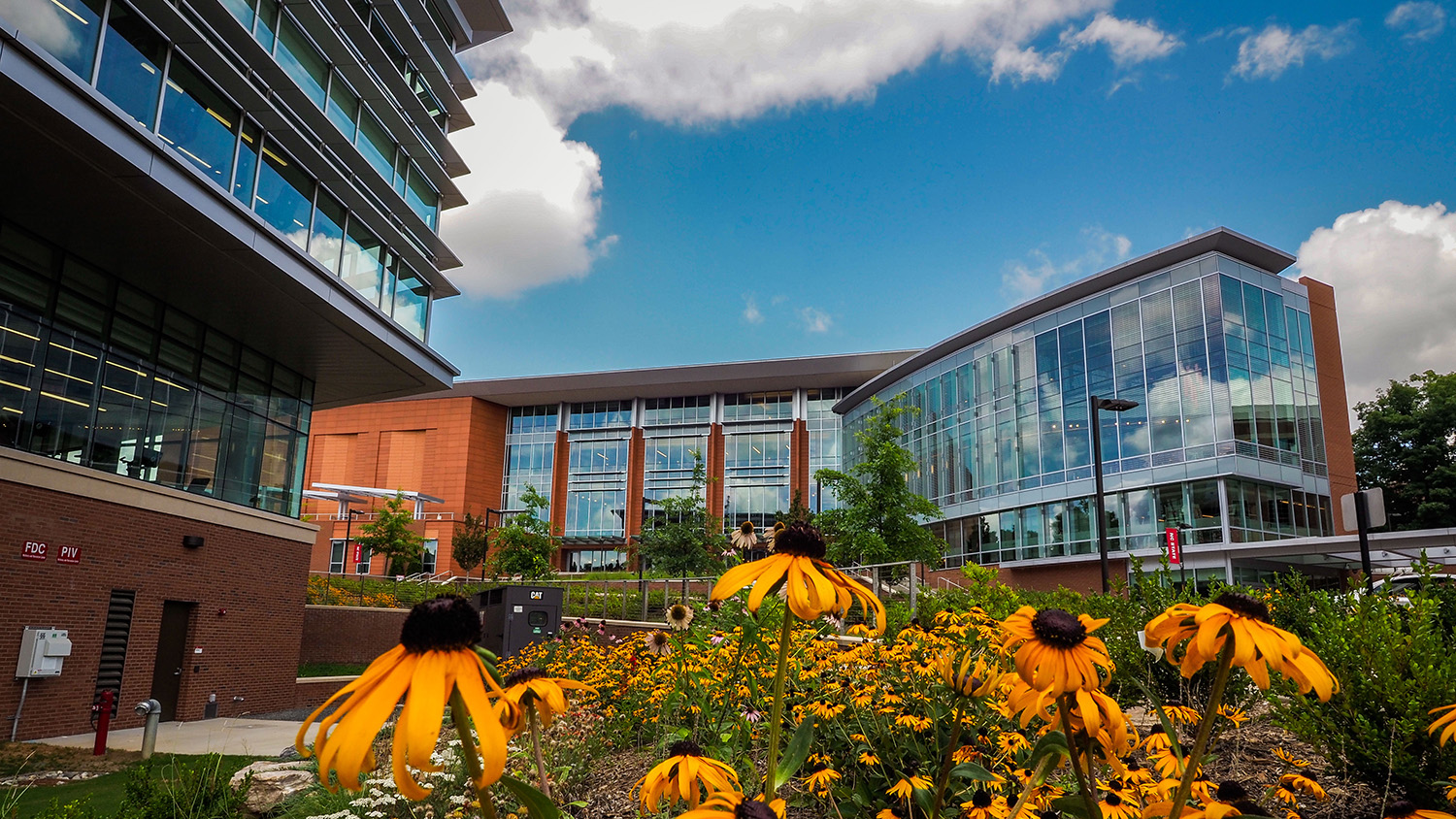Inside an IEP: Immersive Meetings to Prepare Future Teachers
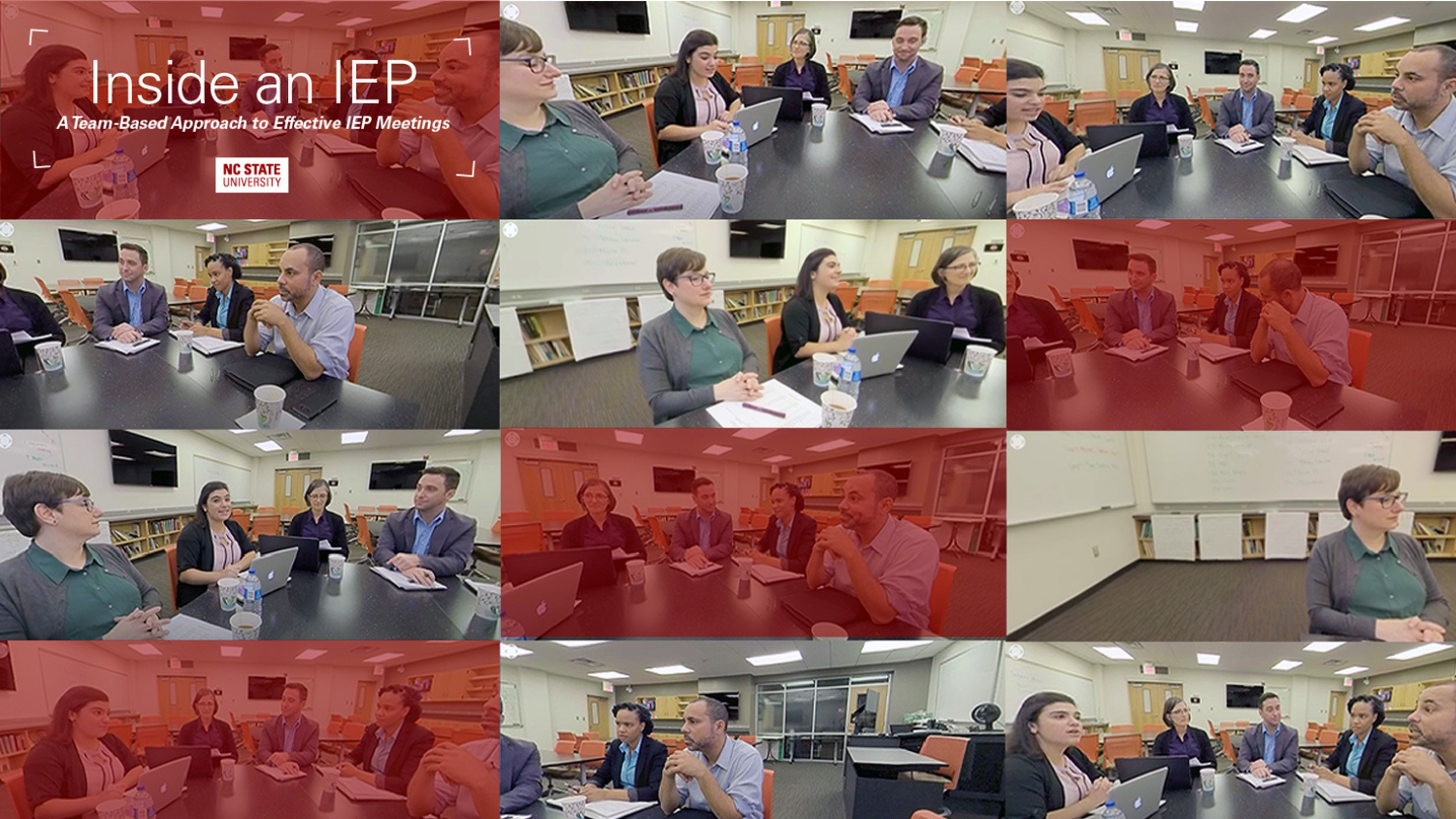
Students with disabilities make up about 14% of learners in U.S. public schools, and each is entitled to an Individualized Education Program (IEP), which serves as a roadmap for specialized instruction and educational support. The written IEP documents are developed at IEP meetings: closed sessions attended by the student, their parent(s) or guardian(s), general and special education teachers, related service providers such as school counselors, occupational therapists, speech-language pathologists and administrators.
Although pre-service special education teachers receive training and preparation in the development and implementation of IEPs, new teachers often lack exposure and experience with closed IEP meetings. General education teachers tend to have even less exposure to the IEP process despite the high-stakes nature of IEP meetings, which carry confidentiality agreements and legal ramifications.
DELTA Instructional Technologist Christopher Beeson explains.
“I was a special education teacher. When I was student teaching, I was very lucky in that I [worked with] a couple of parents who allowed me to come into the IEP meeting so I could learn. But that’s not the case for everyone.”
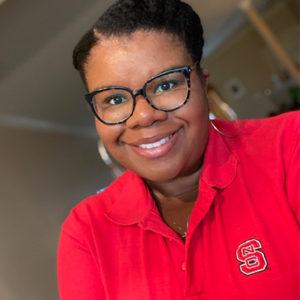
Jamie Pearson, assistant professor of special education in the College of Education, saw a need to better prepare all pre-service teachers for IEP meetings before they enter the field. After receiving a DELTA Grant to address the problem in 2018, she and the project team realized that their work — and NC State students — could benefit from an immersive experience.
With an Exploratory DELTA Grant awarded in 2019, Pearson embarked on a new project: creating an IEP meeting in virtual reality (VR).
“We developed the project from the ground up — including writing the script, hiring actors, and doing lots of behind-the-scenes development that is way outside of my wheelhouse. I’m so grateful to the DELTA team for their work,” says Pearson.
The Solutions
The grant resulted in two final products. The first was a 20-minute model IEP meeting that students experience in 3D, 360° VR video.
“The purpose of this project was to develop a mini IEP meeting that would give pre-service special education and general education teachers an opportunity to ‘participate’ in an IEP meeting in a low-stakes, VR environment,” says Pearson.
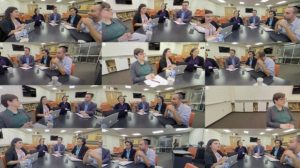
Students wear a VR head-mounted display (HMD) to enter the 20-minute meeting, acting as a notetaker beside a general education teacher, special education teacher/case manager, student, mother, father, facilitator and school administrator, all played by trained actors. Along with accurate terminology and natural speaking patterns, nonverbal cues were built into the script to best simulate the nuances of a real-world IEP meeting. Students can look around and contribute to the conversation taking place, making them an active participant in the virtual meeting.
Although previous iterations of the course already incorporated animated, 2D interactive learning activities for students, the experiences didn’t go far enough to develop a sense of immediate presence. Needing to give students the semblance of real engagement and ownership over the moment, the project became the perfect candidate for VR.
“Real life doesn’t happen in 2D,” says Beeson. “I think virtual reality is best used in constructed scenarios to give people an experience that they wouldn’t typically have, and I think this was a good fit for that.”
Project Lead Donnie Wrights emphasized that the project checked all the boxes for VR.
“We get a lot of requests for immersive experiences that really don’t need to be an immersive experience. This just made perfect sense. This is what VR is made for.”
“VR can do a great job of giving the end-user a sense of presence in a space along with a connection to a subject, in this case a group of people engaged in a conversation,” adds Creative Director Mike Cuales. “That becomes a really great tool for preparedness. It’s not replacing — we’re just exposing and preparing students for what they will ultimately experience in real life.
“It’s not something you can describe, it’s not something you can explain, it’s something you have to experience, and VR gets us a little bit closer,” says Cuales.
The virtual IEP meeting is used as a learning experience for pre-service general teachers in ECI 416: Teaching Exceptional Students in the Mainstreamed Classroom, a distance education course. DELTA has used VR extensively on NC State’s campus, but this was an opportunity to do it at a distance. The project became DELTA’s first effort at remote distribution of VR headsets (in this case, the Oculus Go) with a custom VR application developed in-house using the Unity game engine. The headsets were shipped to students with return labels.
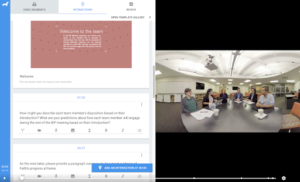
The project’s second final product is a web-browser-based 360° video recording of the virtual IEP meeting. While this version is not delivered in virtual reality, it is highly engaging thanks to PlayPosit, NC State’s interactive video tool.
Part of the WolfWare suite of enterprise-level academic tools, PlayPosit allows instructors to transform any video into an interactive learning experience by embedding questions, images, audio and other media elements. PlayPosit also hosts data about students’ use and performance within the embedded interactions.
Pearson uploaded the 360° videos to YouTube and integrated them with PlayPosit, allowing her to gather rich data on performance and develop formative assessment measures that can rightfully inform future instruction. Pearson can return to PlayPosit at any time to alter, change and repurpose the interactions based on her desired focus. With YouTube and PlayPosit integration, the meeting is accessible to all learners.
“PlayPosit allows my students to stop, think, reflect and replay. It gives them an opportunity to engage with the experience in a more meaningful way. It also provides me with feedback about how the students are doing so I can tailor my instruction to fill in the gaps,” Pearson says.
In the course, Pearson first provides students with the IEP meeting in VR and later reinforces its lessons with the PlayPosit version, or vice versa. This project is PlayPosit’s first venture with 360° video. Beeson and others on DELTA’s Instructional Technology Training team worked closely with PlayPosit’s customer success team to develop best practices and give feedback on the process.
The products created by Pearson and DELTA could be leveraged for a variety of experience-based learning concepts in educational studies and beyond. Pearson sees the project making a significant difference for her students and future learners.
“I think virtual reality feels a lot different than the traditional mock IEP meetings that students see online, and it gives us the flexibility to tailor this experience to meet the needs of pre-service teachers who will be supporting students with disabilities,” Pearson says.
Impact and Influence
Pearson believes that this DELTA Grant has the potential to shape students’ knowledge and perceptions of IEP meetings in her course and once they enter the field.
“We were very intentional about making this particular IEP meeting a fairly positive experience. Oftentimes, this is not the case in schools — partnerships between educators and parents can be challenging. But I wanted to model a positive IEP experience and set a high expectation for my students. This VR experience will still be nothing like when they sit down in their first IEP meeting, but I think they will go into it with a bit more preparation and some specific tools for how to work collaboratively in the development and implementation of IEPs,” she says.
Cuales thinks the unique experiences could create a new standard for general education preparation and accreditation, with the potential for use as a professional development and continuing education opportunity.
Pearson agrees that the project has the chance to impact special and general education teachers at large.
“I see this as a useful tool for in-service teachers who need professional development around IEP development and implementation. Special education and general education students will come out of the experience better prepared to attend these meetings, help their students, and positively impact the educational experience.”


